The History Book Club discussion

This topic is about
The Republic
PHILOSOPHY AND POLITICS
>
ARCHIVE - PLATO'S REPUBLIC - No Spoilers, Please - MAIN DISCUSSION
message 52:
by
Bentley, Group Founder, Leader, Chief
(last edited May 22, 2016 02:34PM)
(new)
-
added it
Here is the Seventh Letter by Plato (written 360 B.C.E.)
http://classics.mit.edu/Plato/seventh...
Professor Smith references this letter as one of the reasons that Plato wrote The Republic.
This is not in spoiler html because it is not referencing the work specifically.
I would read it to start to understand Plato and what he was thinking.
Excerpts:
He says the following in the second paragraph:
"In my youth I went through the same experience as many other men. I fancied that if, early in life, I became my own master, I should at once embark on a political career. And I found myself confronted with the following occurrences in the public affairs of my own city. The existing constitution being generally condemned, a revolution took place, and fifty-one men came to the front as rulers of the revolutionary government, namely eleven in the city and ten in the Peiraeus-each of these bodies being in charge of the market and municipal matters-while thirty were appointed rulers with full powers over public affairs as a whole. Some of these were relatives and acquaintances of mine, and they at once invited me to share in their doings, as something to which I had a claim. The effect on me was not surprising in the case of a young man. I considered that they would, of course, so manage the State as to bring men out of a bad way of life into a good one. So I watched them very closely to see what they would do".
Another powerful section:
"The result was that, though at first I had been full of a strong impulse towards political life, as I looked at the course of affairs and saw them being swept in all directions by contending currents, my head finally began to swim; and, though I did not stop looking to see if there was any likelihood of improvement in these symptoms and in the general course of public life, I postponed action till a suitable opportunity should arise. Finally, it became clear to me, with regard to all existing cornmunities, that they were one and all misgoverned. For their laws have got into a state that is almost incurable, except by some extraordinary reform with good luck to support it. And I was forced to say, when praising true philosophy that it is by this that men are enabled to see what justice in public and private life really is. Therefore, I said, there will be no cessation of evils for the sons of men, till either those who are pursuing a right and true philosophy receive sovereign power in the States, or those in power in the States by some dispensation of providence become true philosophers".
His impression of young men
"My own opinion, so far as the young men were concerned, and the probable line which their conduct would take, was full of apprehension-for young men are quick in forming desires, which often take directions conflicting with one another."
Interesting about the role of advisor
"He who advises a sick man, whose manner of life is prejudicial to health, is clearly bound first of all to change his patient's manner of life, and if the patient is willing to obey him, he may go on to give him other advice. But if he is not willing, I shall consider one who declines to advise such a patient to be a man and a physician, and one who gives in to him to be unmanly and unprofessional. In the same way with regard to a State, whether it be under a single ruler or more than one, if, while the government is being carried on methodically and in a right course, it asks advice about any details of policy, it is the part of a wise man to advise such people. But when men are traveling altogether outside the path of right government and flatly refuse to move in the right path, and start by giving notice to their adviser that he must leave the government alone and make no change in it under penalty of death-if such men should order their counsellors to pander to their wishes and desires and to advise them in what way their object may most readily and easily be once for all accomplished, I should consider as unmanly one who accepts the duty of giving such forms of advice, and one who refuses it to be a true man. "
Interesting view:
"Dion's aspiration however was the same that I should say my own or that of any other right-minded man ought to be. With regard to his own power, his friends and his country the ideal of such a man would be to win the greatest power and honour by rendering the greatest services. And this end is not attained if a man gets riches for himself, his supporters and his country, by forming plots and getting together conspirators, being all the while a poor creature, not master of himself, overcome by the cowardice which fears to fight against pleasures; nor is it attained if he goes on to kill the men of substance, whom he speaks of as the enemy, and to plunder their possessions, and invites his confederates and supporters to do the same, with the object that no one shall say that it is his fault, if he complains of being poor. The same is true if anyone renders services of this kind to the State and receives honours from her for distributing by decrees the property of the few among the many-or if, being in charge the affairs of a great State which rules over many small ones, he unjustly appropriates to his own State the possessions of the small ones. For neither a Dion nor any other man will, with his eyes open, make his way by steps like these to a power which will be fraught with destruction to himself and his descendants for all time; but he will advance towards constitutional government and the framing of the justest and best laws, reaching these ends without executions and murders even on the smallest scale.
This course Dion actually followed, thinking it preferable to suffer iniquitous deeds rather than to do them; but, while taking precautions against them, he nevertheless, when he had reached the climax of victory over his enemies, took a false step and fell, a catastrophe not at all surprising. For a man of piety, temperance and wisdom, when dealing with the impious, would not be entirely blind to the character of such men, but it would perhaps not be surprising if he suffered the catastrophe that might befall a good ship's captain, who would not be entirely unaware of the approach of a storm, but might be unaware of its extraordinary and startling violence, and might therefore be overwhelmed by its force. The same thing caused Dion's downfall. For he was not unaware that his assailants were thoroughly bad men, but he was unaware how high a pitch of infatuation and of general wickedness and greed they had reached. This was the cause of his downfall, which has involved Sicily in countless sorrows. "
More: http://kentzendo.org/welton/PlatoSeve...
http://hfc-worldwide.org/blog/2015/01...
http://classics.mit.edu/Plato/seventh...
Professor Smith references this letter as one of the reasons that Plato wrote The Republic.
This is not in spoiler html because it is not referencing the work specifically.
I would read it to start to understand Plato and what he was thinking.
Excerpts:
He says the following in the second paragraph:
"In my youth I went through the same experience as many other men. I fancied that if, early in life, I became my own master, I should at once embark on a political career. And I found myself confronted with the following occurrences in the public affairs of my own city. The existing constitution being generally condemned, a revolution took place, and fifty-one men came to the front as rulers of the revolutionary government, namely eleven in the city and ten in the Peiraeus-each of these bodies being in charge of the market and municipal matters-while thirty were appointed rulers with full powers over public affairs as a whole. Some of these were relatives and acquaintances of mine, and they at once invited me to share in their doings, as something to which I had a claim. The effect on me was not surprising in the case of a young man. I considered that they would, of course, so manage the State as to bring men out of a bad way of life into a good one. So I watched them very closely to see what they would do".
Another powerful section:
"The result was that, though at first I had been full of a strong impulse towards political life, as I looked at the course of affairs and saw them being swept in all directions by contending currents, my head finally began to swim; and, though I did not stop looking to see if there was any likelihood of improvement in these symptoms and in the general course of public life, I postponed action till a suitable opportunity should arise. Finally, it became clear to me, with regard to all existing cornmunities, that they were one and all misgoverned. For their laws have got into a state that is almost incurable, except by some extraordinary reform with good luck to support it. And I was forced to say, when praising true philosophy that it is by this that men are enabled to see what justice in public and private life really is. Therefore, I said, there will be no cessation of evils for the sons of men, till either those who are pursuing a right and true philosophy receive sovereign power in the States, or those in power in the States by some dispensation of providence become true philosophers".
His impression of young men
"My own opinion, so far as the young men were concerned, and the probable line which their conduct would take, was full of apprehension-for young men are quick in forming desires, which often take directions conflicting with one another."
Interesting about the role of advisor
"He who advises a sick man, whose manner of life is prejudicial to health, is clearly bound first of all to change his patient's manner of life, and if the patient is willing to obey him, he may go on to give him other advice. But if he is not willing, I shall consider one who declines to advise such a patient to be a man and a physician, and one who gives in to him to be unmanly and unprofessional. In the same way with regard to a State, whether it be under a single ruler or more than one, if, while the government is being carried on methodically and in a right course, it asks advice about any details of policy, it is the part of a wise man to advise such people. But when men are traveling altogether outside the path of right government and flatly refuse to move in the right path, and start by giving notice to their adviser that he must leave the government alone and make no change in it under penalty of death-if such men should order their counsellors to pander to their wishes and desires and to advise them in what way their object may most readily and easily be once for all accomplished, I should consider as unmanly one who accepts the duty of giving such forms of advice, and one who refuses it to be a true man. "
Interesting view:
"Dion's aspiration however was the same that I should say my own or that of any other right-minded man ought to be. With regard to his own power, his friends and his country the ideal of such a man would be to win the greatest power and honour by rendering the greatest services. And this end is not attained if a man gets riches for himself, his supporters and his country, by forming plots and getting together conspirators, being all the while a poor creature, not master of himself, overcome by the cowardice which fears to fight against pleasures; nor is it attained if he goes on to kill the men of substance, whom he speaks of as the enemy, and to plunder their possessions, and invites his confederates and supporters to do the same, with the object that no one shall say that it is his fault, if he complains of being poor. The same is true if anyone renders services of this kind to the State and receives honours from her for distributing by decrees the property of the few among the many-or if, being in charge the affairs of a great State which rules over many small ones, he unjustly appropriates to his own State the possessions of the small ones. For neither a Dion nor any other man will, with his eyes open, make his way by steps like these to a power which will be fraught with destruction to himself and his descendants for all time; but he will advance towards constitutional government and the framing of the justest and best laws, reaching these ends without executions and murders even on the smallest scale.
This course Dion actually followed, thinking it preferable to suffer iniquitous deeds rather than to do them; but, while taking precautions against them, he nevertheless, when he had reached the climax of victory over his enemies, took a false step and fell, a catastrophe not at all surprising. For a man of piety, temperance and wisdom, when dealing with the impious, would not be entirely blind to the character of such men, but it would perhaps not be surprising if he suffered the catastrophe that might befall a good ship's captain, who would not be entirely unaware of the approach of a storm, but might be unaware of its extraordinary and startling violence, and might therefore be overwhelmed by its force. The same thing caused Dion's downfall. For he was not unaware that his assailants were thoroughly bad men, but he was unaware how high a pitch of infatuation and of general wickedness and greed they had reached. This was the cause of his downfall, which has involved Sicily in countless sorrows. "
More: http://kentzendo.org/welton/PlatoSeve...
http://hfc-worldwide.org/blog/2015/01...
message 53:
by
Bentley, Group Founder, Leader, Chief
(last edited May 24, 2016 02:00PM)
(new)
-
added it
The following is in a spoiler - this spoiler discusses some of the major questions in The Republic and why Plato wrote The Republic
(view spoiler)

Statue of Socrates in front of the Academy of Athens, 19th Centure. HFC
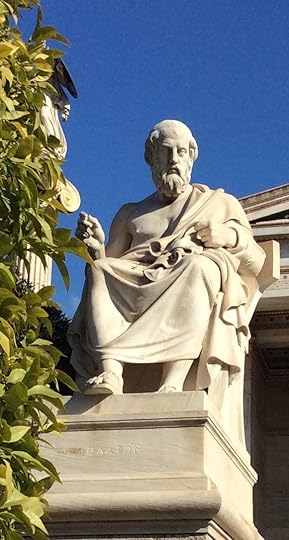
Statue of Plato in front of the Academy of Athens, 19th century. The statues of Socrates and Plato flank the main entrance to the Academy. HFC.
(view spoiler)

Statue of Socrates in front of the Academy of Athens, 19th Centure. HFC

Statue of Plato in front of the Academy of Athens, 19th century. The statues of Socrates and Plato flank the main entrance to the Academy. HFC.
 I began my reading today and I realize after I read, I needed an audio reading to help me process. Yes I am slow amd I have touch any Philosophy material for a few years. I am not sure how I can go ahead to discuss such concepts or if I will be able to at all but I will definitely be reading along ( a week or two behind)
I began my reading today and I realize after I read, I needed an audio reading to help me process. Yes I am slow amd I have touch any Philosophy material for a few years. I am not sure how I can go ahead to discuss such concepts or if I will be able to at all but I will definitely be reading along ( a week or two behind)
message 55:
by
Bentley, Group Founder, Leader, Chief
(last edited May 22, 2016 03:09PM)
(new)
-
added it
That is no problem whatsoever Noirfifre - we are all here to help you.
And we are all learning from each other.
That is why we are using the spoiler html so that nothing is spoiled for those people reading behind us on their own schedule.
Just try to do a cursory reading and listen and pick up as much as you can as you go along. This is a work that you could read ten times and come up with other ideas each time.
There is a free Libravox audio available so that you can listen and read along at the same time.
Go to message three on this thread and the link is there. Hope this helps you.
And we are all learning from each other.
That is why we are using the spoiler html so that nothing is spoiled for those people reading behind us on their own schedule.
Just try to do a cursory reading and listen and pick up as much as you can as you go along. This is a work that you could read ten times and come up with other ideas each time.
There is a free Libravox audio available so that you can listen and read along at the same time.
Go to message three on this thread and the link is there. Hope this helps you.
message 56:
by
Bentley, Group Founder, Leader, Chief
(last edited May 22, 2016 03:06PM)
(new)
-
added it
Folks for those of you who would like to drill down in depth on the idea of justice - I have set up a spoiler CONCEPT thread. No html needs to be used on the spoiler thread whereas this one is the single thread discussion of the entire work and we need to use html for the people reading after us.
This is the LINK FOR THE SPOILER discussion thread on the concept of Justice
https://www.goodreads.com/topic/show/...
This is the LINK FOR THE SPOILER discussion thread on the concept of Justice
https://www.goodreads.com/topic/show/...
Bentley wrote: "Here is the Seventh Letter by Plato (written 360 B.C.E.)
http://classics.mit.edu/Plato/seventh...
Professor Smith references this letter as one of the reasons that Plato wrote The Republ..."
Thank you.
http://classics.mit.edu/Plato/seventh...
Professor Smith references this letter as one of the reasons that Plato wrote The Republ..."
Thank you.
Everyone, for the week of May 23th - May 29nd, we are reading Book Three and Book Four of Plato's The Republic.
My edition - by
by
 Plato translated by
Plato translated by
 W.H.D. Rouse
W.H.D. Rouse
The second week’s reading assignment is:
Week Two - May 23rd - May 29th
Book Three: The Arts in Education - pages 207 - 251 and Book Four: Wealth, Poverty, and Virtue - pages 251 - 287
Chapter Overview(s) and Summary
Book Three - The Arts in Education
(view spoiler)
Book Four - Wealth, Poverty, and Virtue
(view spoiler)
My edition -
 by
by
 Plato translated by
Plato translated by
 W.H.D. Rouse
W.H.D. RouseThe second week’s reading assignment is:
Week Two - May 23rd - May 29th
Book Three: The Arts in Education - pages 207 - 251 and Book Four: Wealth, Poverty, and Virtue - pages 251 - 287
Chapter Overview(s) and Summary
Book Three - The Arts in Education
(view spoiler)
Book Four - Wealth, Poverty, and Virtue
(view spoiler)
message 63:
by
Bentley, Group Founder, Leader, Chief
(last edited May 24, 2016 01:28PM)
(new)
-
added it
Folks an overview of some of the questions that you might find discussed in Plato's Republic and this is just a small sampling - I will add more so that you are on the lookout for them and can ponder what you think Plato through Socrates and the Socratic Dialogues are discussing and asking you to think about.
(view spoiler)
(view spoiler)
message 64:
by
Bentley, Group Founder, Leader, Chief
(last edited May 24, 2016 01:46PM)
(new)
-
added it
A Structural Roadmap
For those folks who are starting out and trying to understand how this work is set up - I am going to try to outline it for you - how all of the Ten Books which could also be termed chapters are structured so that you have an idea as to how these books are organized.
One could take these Ten Books or you might call them large chapters and organize them into four distinct sections.
Section One
Book One is the Prologue and it introduces the cast of characters - it presents the most basic issue that we will pursue in the entire reading - namely what is justice.
And it presents the follow up question to that which is why is a life of justice superior to a life of injustice.
Section Two
We then move to Book Two, Book Three and Book Four - this next stage is like a construction project - the speakers will develop or mentally build a structure for an ideal city - a city which they will claim in their own arguments is a city that is in fact “just”.
Section Three
The next section is constituted by Books Five, Six and Seven - here we will find a great digression. We will find Plato talking to us not only about political philosophy but also philosophy in general. These central books are referred to as just that - the philosophical books of the dialogue.
Section Four
The last stage of the Republic is constituted by Books Eight, Nine and Ten. Here we will find the characters returning to the theme of real world politics.
Plato has made Socrates the hero of the dialogue and he will discuss regimes which are unjust and very familiar to us today - remember that Plato wrote The Republic- but has others debate and discuss his ideas.
Note: This is a Roadmap and does not need to be in spoiler html
For those folks who are starting out and trying to understand how this work is set up - I am going to try to outline it for you - how all of the Ten Books which could also be termed chapters are structured so that you have an idea as to how these books are organized.
One could take these Ten Books or you might call them large chapters and organize them into four distinct sections.
Section One
Book One is the Prologue and it introduces the cast of characters - it presents the most basic issue that we will pursue in the entire reading - namely what is justice.
And it presents the follow up question to that which is why is a life of justice superior to a life of injustice.
Section Two
We then move to Book Two, Book Three and Book Four - this next stage is like a construction project - the speakers will develop or mentally build a structure for an ideal city - a city which they will claim in their own arguments is a city that is in fact “just”.
Section Three
The next section is constituted by Books Five, Six and Seven - here we will find a great digression. We will find Plato talking to us not only about political philosophy but also philosophy in general. These central books are referred to as just that - the philosophical books of the dialogue.
Section Four
The last stage of the Republic is constituted by Books Eight, Nine and Ten. Here we will find the characters returning to the theme of real world politics.
Plato has made Socrates the hero of the dialogue and he will discuss regimes which are unjust and very familiar to us today - remember that Plato wrote The Republic- but has others debate and discuss his ideas.
Note: This is a Roadmap and does not need to be in spoiler html
For those of you who would like to read the text but listen to it being read in the background at the same time -
Here is a link: (you can download this audio and listen to it in your car or walking about or jogging or in your home) - Sometimes it is helpful to have the audio going when you are reading. You seem to understand the cadence of the writing better that way.
https://youtu.be/xGPT24dlXJs
Note: This is a reading aide and does not need to be in spoiler html
Here is a link: (you can download this audio and listen to it in your car or walking about or jogging or in your home) - Sometimes it is helpful to have the audio going when you are reading. You seem to understand the cadence of the writing better that way.
https://youtu.be/xGPT24dlXJs
Note: This is a reading aide and does not need to be in spoiler html
message 67:
by
Bentley, Group Founder, Leader, Chief
(last edited May 24, 2016 04:55PM)
(new)
-
added it
message 70:
by
Bentley, Group Founder, Leader, Chief
(last edited May 24, 2016 07:19PM)
(new)
-
added it
Very interesting Vicki - thank you. (view spoiler)
I will post some comments briefly on the events of that period.
Note: General comment - some of this does not need to be in spoiler html - the remainder does.
I thought this might bring a smile:

I will post some comments briefly on the events of that period.
Note: General comment - some of this does not need to be in spoiler html - the remainder does.
I thought this might bring a smile:

message 73:
by
Bentley, Group Founder, Leader, Chief
(last edited May 25, 2016 11:30PM)
(new)
-
added it
Who are the Characters in Plato's Republic:
The Characters:
(view spoiler)
I would strongly recommend a companion reader to help you along - this is one that is not bad.
 by Nicholas P. White (no photo)
by Nicholas P. White (no photo)
Source: Nicholas P. White on Google
The Characters:
(view spoiler)
I would strongly recommend a companion reader to help you along - this is one that is not bad.
 by Nicholas P. White (no photo)
by Nicholas P. White (no photo)Source: Nicholas P. White on Google
message 74:
by
Bentley, Group Founder, Leader, Chief
(last edited May 25, 2016 11:53PM)
(new)
-
added it
It does not make any difference what Plato's The Republic edition you are using - you do not have to be using Vicki's - you can quote any lines of passages using Stephanus numbers:
Quoting Plato: Stephanus Numbers
The figures and letters used almost universally to quote Plato refer to a Renaissance edition of his works published in Geneva in 1578 by a famed printer and humanist of the time named Henri Estienne (1528-1598), also known by the Latinized version of his name: Stephanus.
This complete edition of Plato's works was in three volumes, whose pages were continuously numbered from the beginning to the end of each volume. Each page of this edition is split into two columns, the right one providing the Greek text and the left one a Latin translation (by Jean de Serres). In between the two columns are printed letters from a to e dividing the column into five sections.
Based on this, a quotation of Plato includes the name of the dialogue and the page number in the Stephanus edition followed by the letter of the section that includes the first word of the quotation.
Thus, quotations take the form Crito 52c or Republic 343d .
Quotations are usually given with reference to the start and end point of the quoted section. If the end point is on the same page as the start point, only the end section letter is added, and the quotation takes the form Crito 51 d-e. If the end point is on a different page, the end page number and section letter are provided too, and the quotation takes the form Crito 50e-51b.
Another Sample:
Standard paging system:
For example, 521 a - refers to page 521 (that is Stephanus page 521)
And "a" refers to a paragraph or a series of lines
Vicki - please refer to only Stephanus page numbers because most folks will have varying texts and translations.
(Excerpt from a text by Bernard Suzanne)
What the heck are stephanus numbers?
Stephanus pagination is a system of reference and organization used in modern editions and translations of Plato (and less famously, Plutarch) based on the 1578 edition [1] of Plato's complete works translated by Joannes Serranus (Jean de Serres) and published by Henricus Stephanus (Henri Estienne) in Geneva. Plato's (and Plutarch's) works are divided into numbers, and each number is divided into equal sections: a, b, c, d, and e. This system is often used to reference Plato. For example, 'Symposium 172a' refers to a specific passage of Plato's Symposium. Stephanus numbers refer to page numbers in the various volumes of Estienne's edition of 1578. No Platonic work spans more than one volume so there are no multiple occurrences of the same page number for a single work. Since Estienne published three volumes, however, the numbers need to be used in conjunction with a Platonic title to identify a unique text. For example, '172a' by itself could refer to a passage in any one of three dialogues, but Symposium 172a refers only to one passage.
More specific citations may add line numbers, e.g. Symposium 209a5–9, but these generally refer to the lines in John Burnet's Oxford Classical Text, not to Estienne's line divisions.
There are some peculiarities in the Stephanus page numbers. The length of each page and each paragraph can vary if extra commentary appears on the page of the 1578 edition. Thus Stephanus pages are not all of the same length. Some pages do not have all the paragraphs a through e. There are also gaps in the sequence of Stephanus page numbers for Plato's Republic and Laws. The reason is that the editors added separate introductions to each 'book' of these longer works, and thus the page numbers of these introductions are not used to refer to pages in Plato's dialogues.
The spurious dialogue Halcyon was included in the corpus of Lucian's works and does not have Stephanus numbers.
Becker numbers are a comparable system for the works of Aristotle.
Source(s): Bernard Suzanne and Wikipedia
Suzanne, Bernard (year unknown), Quoting Plato: Stephanus Numbers (accessed 25/02/2010)
http://www.columbia.edu/itc/lithum/wo...
Quoting Plato: Stephanus Numbers
The figures and letters used almost universally to quote Plato refer to a Renaissance edition of his works published in Geneva in 1578 by a famed printer and humanist of the time named Henri Estienne (1528-1598), also known by the Latinized version of his name: Stephanus.
This complete edition of Plato's works was in three volumes, whose pages were continuously numbered from the beginning to the end of each volume. Each page of this edition is split into two columns, the right one providing the Greek text and the left one a Latin translation (by Jean de Serres). In between the two columns are printed letters from a to e dividing the column into five sections.
Based on this, a quotation of Plato includes the name of the dialogue and the page number in the Stephanus edition followed by the letter of the section that includes the first word of the quotation.
Thus, quotations take the form Crito 52c or Republic 343d .
Quotations are usually given with reference to the start and end point of the quoted section. If the end point is on the same page as the start point, only the end section letter is added, and the quotation takes the form Crito 51 d-e. If the end point is on a different page, the end page number and section letter are provided too, and the quotation takes the form Crito 50e-51b.
Another Sample:
Standard paging system:
For example, 521 a - refers to page 521 (that is Stephanus page 521)
And "a" refers to a paragraph or a series of lines
Vicki - please refer to only Stephanus page numbers because most folks will have varying texts and translations.
(Excerpt from a text by Bernard Suzanne)
What the heck are stephanus numbers?
Stephanus pagination is a system of reference and organization used in modern editions and translations of Plato (and less famously, Plutarch) based on the 1578 edition [1] of Plato's complete works translated by Joannes Serranus (Jean de Serres) and published by Henricus Stephanus (Henri Estienne) in Geneva. Plato's (and Plutarch's) works are divided into numbers, and each number is divided into equal sections: a, b, c, d, and e. This system is often used to reference Plato. For example, 'Symposium 172a' refers to a specific passage of Plato's Symposium. Stephanus numbers refer to page numbers in the various volumes of Estienne's edition of 1578. No Platonic work spans more than one volume so there are no multiple occurrences of the same page number for a single work. Since Estienne published three volumes, however, the numbers need to be used in conjunction with a Platonic title to identify a unique text. For example, '172a' by itself could refer to a passage in any one of three dialogues, but Symposium 172a refers only to one passage.
More specific citations may add line numbers, e.g. Symposium 209a5–9, but these generally refer to the lines in John Burnet's Oxford Classical Text, not to Estienne's line divisions.
There are some peculiarities in the Stephanus page numbers. The length of each page and each paragraph can vary if extra commentary appears on the page of the 1578 edition. Thus Stephanus pages are not all of the same length. Some pages do not have all the paragraphs a through e. There are also gaps in the sequence of Stephanus page numbers for Plato's Republic and Laws. The reason is that the editors added separate introductions to each 'book' of these longer works, and thus the page numbers of these introductions are not used to refer to pages in Plato's dialogues.
The spurious dialogue Halcyon was included in the corpus of Lucian's works and does not have Stephanus numbers.
Becker numbers are a comparable system for the works of Aristotle.
Source(s): Bernard Suzanne and Wikipedia
Suzanne, Bernard (year unknown), Quoting Plato: Stephanus Numbers (accessed 25/02/2010)
http://www.columbia.edu/itc/lithum/wo...
 Sorry I'm late to the party. I've been pretty busy with two new jobs and I've only just now found time to start in on The Republic. These are my answers to the questions for books I and II:
Sorry I'm late to the party. I've been pretty busy with two new jobs and I've only just now found time to start in on The Republic. These are my answers to the questions for books I and II:Book I
(view spoiler)
Book II
(view spoiler)
 by Anonymous(no photo)
by Anonymous(no photo)
 Thomas More
Thomas More
Christopher wrote: "Sorry I'm late to the party. I've been pretty busy with two new jobs and I've only just now found time to start in on The Republic."
Christopher, it's never too late to join in on the discussion. We're glad to have you here.
Book I
(view spoiler)
Book II
(view spoiler)
Christopher, it's never too late to join in on the discussion. We're glad to have you here.
Book I
(view spoiler)
Book II
(view spoiler)
Folks, next week we will be talking about Books 5 and 6. Week Three - May 30th - June 5th.
Book Five: On Matrimony and Philosophy - pages 287 – 328, Stephanus 449-483
and Book Six: The Philosophy of Government - pages 328 – 365, Stephanus 484-513
Book Five: On Matrimony and Philosophy - pages 287 – 328, Stephanus 449-483
and Book Six: The Philosophy of Government - pages 328 – 365, Stephanus 484-513
I find that my enjoyment in reading Plato is very dependent on the translation. A few months ago when we started planning to read The Republic, I got The Republic, translated by Tom Griffith, from the library and liked the contemporary phrasing. But by the time we really started on the discussion, both copies in my library were checked out (I only got it today) and I bought Great Dialogues of Plato, translated by W.H.D. Rouse, at my local bookstore. To tell the truth, I didn't really enjoy reading this edition.
Here's a comparison from early in Book 1 -
329a:
Tom Griffith version :
Cephalus: I'll tell you exactly how it strikes me, Socrates. There's a group of us who meet fairly often. We're all about the same age, so we're following the words of the old proverb.
W.H.D. Rouse version:
Cephalus: "Well, my dear Socrates," he said, "I will tell you how I feel. We often meet, a few of much the same age, like to like as the old proverb says."
I realize they're saying the same thing, but I just feel more comfortable with the more modern language. Also, the Griffith version has the Stephanus numbers and the other one doesn't.
I wonder if anyone else has thoughts about the translations.
 by
by
 Plato
Plato
 by
by
 Plato
Plato
Here's a comparison from early in Book 1 -
329a:
Tom Griffith version :
Cephalus: I'll tell you exactly how it strikes me, Socrates. There's a group of us who meet fairly often. We're all about the same age, so we're following the words of the old proverb.
W.H.D. Rouse version:
Cephalus: "Well, my dear Socrates," he said, "I will tell you how I feel. We often meet, a few of much the same age, like to like as the old proverb says."
I realize they're saying the same thing, but I just feel more comfortable with the more modern language. Also, the Griffith version has the Stephanus numbers and the other one doesn't.
I wonder if anyone else has thoughts about the translations.
 by
by
 Plato
Plato by
by
 Plato
Plato
Supposedly the Ivies and Professor Smith use the Bloom translation - I think sometimes it is a personal thing. Some folks like a modern hip translation and others want a more authentic original translation much as if when Plato wrote everything.
 Again, sorry that I am late to discussing books III and IV. After today I will be on track with the rest of the discussion. Here are my answers to the questions for books III and IV:
Again, sorry that I am late to discussing books III and IV. After today I will be on track with the rest of the discussion. Here are my answers to the questions for books III and IV:Book III
(view spoiler)
Book IV
(view spoiler)
 by
by
 Aldous Huxley
Aldous Huxley
Everyone, for the week of May 30th - June 5th, we are reading Book Five and Book Six of Plato's The Republic.
My edition - by
by
 Plato translated by
Plato translated by
 W.H.D. Rouse
W.H.D. Rouse
The third week’s reading assignment is:
Week Three - May 30th - June 5th
Book Five: On Matrimony and Philosophy - 449a-480, pages 287 - 328 and Book Six: The Philosophy of Government - 484a-511c, pages 328 - 365
Chapter Overview(s) and Summary
Book Five - On Matrimony and Philosophy
(view spoiler)
Book Six - The Philosophy of Government
(view spoiler)
My edition -
 by
by
 Plato translated by
Plato translated by
 W.H.D. Rouse
W.H.D. RouseThe third week’s reading assignment is:
Week Three - May 30th - June 5th
Book Five: On Matrimony and Philosophy - 449a-480, pages 287 - 328 and Book Six: The Philosophy of Government - 484a-511c, pages 328 - 365
Chapter Overview(s) and Summary
Book Five - On Matrimony and Philosophy
(view spoiler)
Book Six - The Philosophy of Government
(view spoiler)
I have some general comments about the Socratic dialog which apply to the whole book, so I'm not enclosing them in spoilers.
Once we get beyond Book I, most of the question and answer conversation seems pretty much like a monologue. Socrates makes a statement or question and Glaucon or Adeimantus or whoever says a version of "Yes, Socrates, that's exactly right." Or in some cases, "I don't really understand what you said about (something). Can you clarify?" There's very little push-back or real dialog going on. Maybe you have a different feeling about this.
Once we get beyond Book I, most of the question and answer conversation seems pretty much like a monologue. Socrates makes a statement or question and Glaucon or Adeimantus or whoever says a version of "Yes, Socrates, that's exactly right." Or in some cases, "I don't really understand what you said about (something). Can you clarify?" There's very little push-back or real dialog going on. Maybe you have a different feeling about this.
 Okay, I'm back on track, so I won't have to be playing catch-up again. Here are my responses to the questions for books V and VI.
Okay, I'm back on track, so I won't have to be playing catch-up again. Here are my responses to the questions for books V and VI.Book V
(view spoiler)
Book VI
(view spoiler)
Everyone, next week we will be talking about Books 7 and 8. Week Four - June 6th - June 12th.
Book Seven: On Shadows and Realities in Education – 514a-541b, pages 365 - 401
and Book Eight: Four Forms of Government – 543a-569c, pages 401 - 436
Book Seven: On Shadows and Realities in Education – 514a-541b, pages 365 - 401
and Book Eight: Four Forms of Government – 543a-569c, pages 401 - 436
Everyone, for the week of June 6th - June 12th, we are reading Book Seven and Book Eight of Plato's The Republic.
My edition - by
by
 Plato translated by
Plato translated by
 W.H.D. Rouse
W.H.D. Rouse
The fourth week’s reading assignment is:
Week Four - June 6th - June 12th
Book Seven : On Shadows and Realities in Education – 514a-541b, pages 365 - 401
and Book Eight : Four Forms of Government – 543a-569c, pages 401 - 436
Chapter Overview(s) and Summary
Book Seven - On Shadows and Realities in Education
(view spoiler)
Book Eight - Wealth, Poverty, and Virtue
(view spoiler)
My edition -
 by
by
 Plato translated by
Plato translated by
 W.H.D. Rouse
W.H.D. RouseThe fourth week’s reading assignment is:
Week Four - June 6th - June 12th
Book Seven : On Shadows and Realities in Education – 514a-541b, pages 365 - 401
and Book Eight : Four Forms of Government – 543a-569c, pages 401 - 436
Chapter Overview(s) and Summary
Book Seven - On Shadows and Realities in Education
(view spoiler)
Book Eight - Wealth, Poverty, and Virtue
(view spoiler)
Books mentioned in this topic
The Just City (other topics)The Republic (other topics)
Plunder and Deceit: Big Government's Exploitation of Young People and the Future (other topics)
Great Dialogues of Plato (other topics)
Great Dialogues of Plato (other topics)
More...
Authors mentioned in this topic
Jo Walton (other topics)Mark R. Levin (other topics)
W.H.D. Rouse (other topics)
Plato (other topics)
W.H.D. Rouse (other topics)
More...




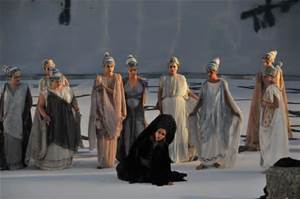
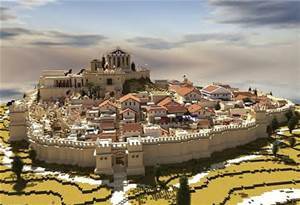
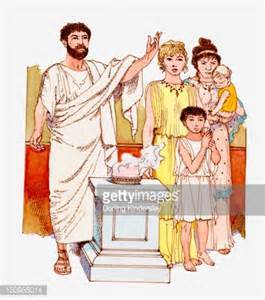
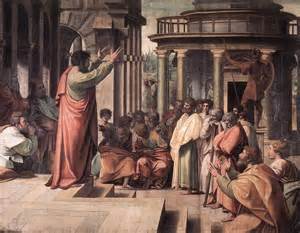

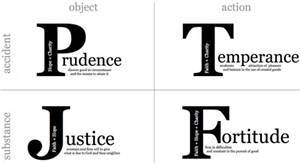

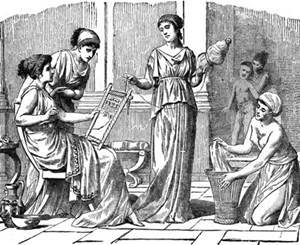

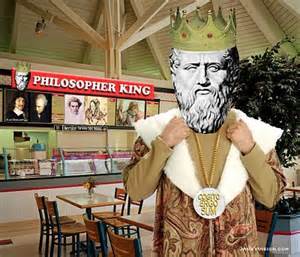
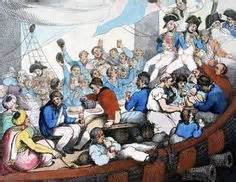
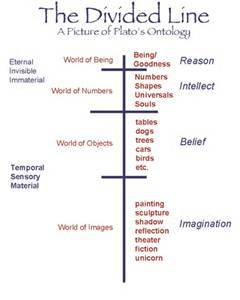

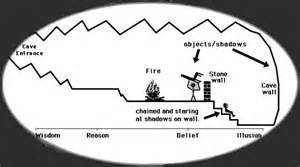
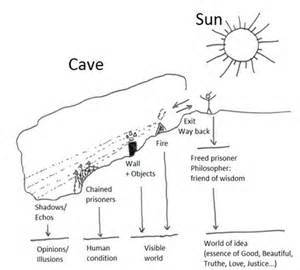
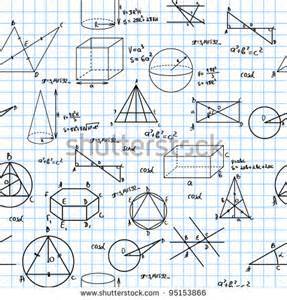
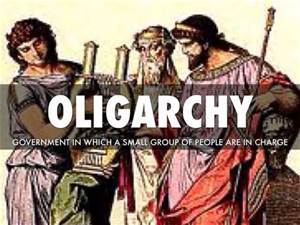



https://www.goodreads.com/topic/show/...
Probably better there because it is the overview thread for the philosophy folder but you can leave it here too. But do make a copy of the post above and post it there as well.
Thank you.